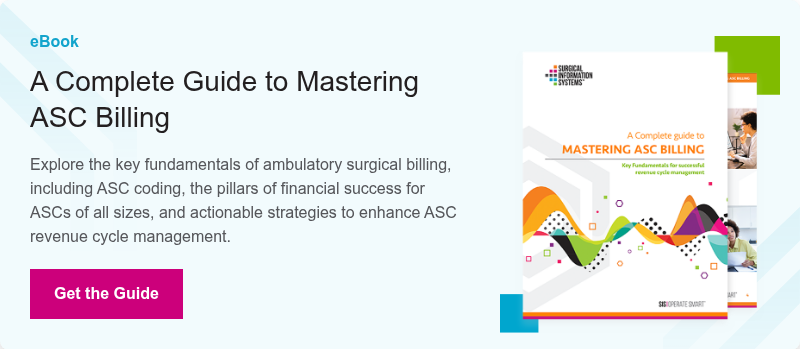- ASC compliance refers to the process of adhering to federal, state, and accreditation rules regarding the quality of care and patient safety.
- Surgery center compliance might feel like you need to jump through a lot of hoops, but the rules and regulations have been established for a reason: They help lower risk and support safe and efficient ASC operations.
- The key to managing ASC compliance is combining smart best practices and proven methodologies with intelligent technology that can support your entire compliance ecosystem.
Ambulatory surgery centers (ASCs) must comply with various regulatory standards and requirements to avoid severe consequences. But compliance isn’t easy — it’s often complex, confusing, and tedious to organize, track, and keep pace with updated rules and evolving policies.
This is why it’s so important to approach surgery center compliance with a structured framework and actionable plan in mind. When you understand the nuts and bolts of ASC compliance, you can construct an effective methodology for managing everything from accreditation and credentialing to staff training and beyond.
But where can you start building a successful ASC compliance program? Right here. We’ve designed this guide to help you understand exactly what ASC compliance is, how compliance can support safer and more efficient operations, and how you can navigate the challenges and nuances of compliance with tried-and-true best practices.
What Is ASC compliance?
ASC compliance refers to the process of adhering to federal, state, and accreditation rules regarding the quality of care and patient safety. These rules establish the standards ASCs must follow and aspire to, and they can help ASCs develop benchmarks and other criteria to evaluate performance. Failing to comply with these rules and requirements can result in penalties, fines, and other punitive actions that could damage an organization’s reputation, erode trust in the establishment, and negatively impact its quality of care and financial performance.
According to the Ambulatory Surgery Center Association (ASCA), ASCs must comply with a host of federal regulations and statutes covering everything from day-to-day operations to how they’re paid and beyond. For example, since many ASCs provide care to Medicare beneficiaries, they must comply with the standards and Conditions for Coverage established by the Centers for Medicare and Medicaid Services (CMS).
ASCs must also comply with the Health Insurance Portability and Accountability Act (HIPAA), the Cures Act Final Rule, and the No Surprises Act, among others. They must meet standards related to accreditation, infection control, patient data privacy, patient rights, billing and coding, surgical services, and more. The list goes on and can get quite complicated depending on the type of services your ASC provides and the jurisdiction in which it operates.
Why does ASC compliance matter? How can it protect patients and your center? In short, surgery center compliance demonstrates that ASCs are committed to quality and safety. By following industry standards and best practices and adhering to regulations established by governing bodies, ASCs can ensure they’re delivering the best quality of care to patients, minimize risk, and build trust and confidence as reputable institutions, so patients know they’re getting the best care available.
Key Regulatory and Accreditation Standards
Federal and state entities establish the rules ASCs must comply with. For example, according to the ASCA, all ASCs serving Medicare beneficiaries must be certified by Medicare, a federal program. Certification requires following the standards developed by the federal government for ensuring the safety of patients and the quality of ASC staff and services. Many states also have specific regulatory requirements, which vary by state. For example, they may require licensure and ongoing inspections and reporting.
In addition, many ASCs seek accreditation by independent healthcare accreditation agencies, which can help ASCs meet specific standards and create benchmarks to compare performance against other ASCs. According to the ASCA, healthcare accreditation agencies for ASCs include: the Accreditation Association for Ambulatory Health Care, QUAD A, Joint Commission, and the Accreditation Commission for Health Care.
Here’s a look at some common ASC accreditation standards:
Credentialing
The credentialing process for ASCs is similar to the process used in most other care settings. It requires collecting and verifying documentation, such as work background, educational background, licensure, and certifications, from healthcare providers to ensure only certified providers are treating patients. This helps protect against legal issues, like malpractice, and build trust with patients.
Documentation
Maintaining credentials files is only part of the documentation requirements for ASCs. You must also keep detailed records related to patient health and history, medication stock levels and expiration dates, personnel files that establish the chain of command, procedure logs, quality and safety logs, treatment instructions and times, billing and coding, and more.
Quality reporting
CMS requires ASCs to comply with the Ambulatory Surgical Center Quality Reporting program, which collects and publicly reports quality measure data from ASCs. Failure to comply can result in payment penalties. The program is designed to evaluate the care an ASC provides and enable patients to compare facility care performance. It measures data related to patient outcomes, processes, safety, care coordination, and more.
Emergency preparedness. As CMS dictates, all ASCs must plan adequately for disasters, natural and otherwise. These plans must coordinate with federal, state, tribal, regional, and local emergency preparedness systems. Creating an emergency preparedness plan is required to prioritize patient safety in emergency situations and often necessitates dedicated procedures and policies, a comprehensive communication plan, and extensive staff training and testing.
How Compliance Supports Safe, Efficient Operations
Surgery center compliance might feel like you need to jump through a lot of hoops, but the rules and regulations — including those highlighted by healthcare accreditation agencies — have been established for a reason: They help lower risk and support safe and efficient ASC operations.
Here are a few ways compliance can protect patients and your organization:
Infection prevention and control
According to the National Healthcare Safety Network, surgical site infections (SSIs) are a substantial cause of morbidity, prolonged hospitalization, and mortality. SSIs account for 20% of all healthcare-associated infections, increase the risk of mortality, and are the costliest infection type with an estimated annual cost of $3.3 billion.
Implementing and ensuring adherence to evidence-based infection prevention and control strategies can help cultivate a safety-first culture, protect patients, and minimize costs related to SSIs.
Data protection and privacy
HIPAA was established to help patients get health insurance, protect patient rights, safeguard patient health information, and enforce transparency and accountability around data breaches. Complying with HIPAA and other data security and privacy requirements is key to adequately protecting data and ensuring patients maintain control over their information and confidentiality. It can also help ASCs establish effective data security protocols and policies.
Staff training and credentialing
Staff training helps ensure that everyone within your ASC is following best practices and prepared to handle any type of situation, including disasters and emergencies. Credentialing helps make sure that the right people are performing the right tasks. Both are key to adhering to a high standard of care and safety, and both are often required and regularly evaluated by healthcare accreditation agencies.
When your ASC has clear compliance workflows, it’s easier to conduct surveys and inspections, assess and evaluate performance, and ensure that all staff are following appropriate procedures and policies. This not only reduces errors but also helps minimize disruptions, lower risk, and increase the quality of care, all while protecting patients and ensuring their safety at scale.
The bottom line? Surgery center compliance can help ASCs maintain low operational costs while better protecting patients and enhancing the overall delivery of care.
Challenges and Best Practices
A successful ASC compliance program will need to factor in the following challenges and best practices.
Key challenges
Billing errors
ASC coding and billing are complex, requiring unique expertise and specialized skills to master. Keeping up to date with coding and billing requirements and training staff on these updates can be even more difficult. Failure to comply with changes or improper billing and coding can result in denials and payment delays, which directly impact profitability.
Documentation inconsistencies
Without stringent attention to detail, errors can slip through in documentation, such as missing signatures, incorrect dates, and the omission of Governing Body approval, among others. These small inconsistencies can snowball and result in big bottlenecks that slow efficiency.
Outdated policies
The healthcare landscape evolves rapidly, and with so many requirements coming from multiple vectors, it can be difficult to keep up. However, if employees are using outdated policies, it can affect more than productivity — it can put patients at risk. As such, it’s vital to maintain up-to-date policies, adhere to ASC accreditation standards, and make sure all staff are equipped with the correct versions.
Medication management
Running out of critical medications is a concern that every healthcare organization worries about, but medication management extends beyond that. Comprehensive medication records must be kept, ensuring stock levels are accurate and sufficient and to document the location of specific medications and whether medication is expired or about to expire. Small errors in medication documentation can affect patient outcomes and must be monitored.
Best practices
Regular audits
Establishing surgery center compliance is only half the battle. ASCs need to ensure ongoing compliance. To accomplish this, audits must be regular practice.
Generally, ASCs should conduct quarterly compliance audits to assess high-risk areas, such as coding and billing and medication management, especially regarding controlled substances. More comprehensive audits should also be conducted annually to validate performance and ensure adherence to ASC accreditation standards. Ongoing monitoring can help fill in the gaps between quarterly and annual assessments.
Retraining
To some, it may seem like a waste of time to retrain on certain procedures and policies. However, retraining is critical to stay up to date with changes. Even if the material hasn’t changed, it’s good practice to reinforce learning and make it second nature.
Make this easy for staff by baking retraining sessions into staff schedules automatically, either on a recurring basis or when new updates are rolling out. This removes the administrative burden and helps them focus on learning the material instead.
Using the right technology
Many ASCs struggle with managing compliance across multiple systems and solutions, with some even maintaining written records still. However, the right technology can consolidate your compliance efforts and bring your entire compliance ecosystem into one centralized platform. This can make it significantly easier to not only keep accurate, up-to-date records but also roll out changes to policies and procedures and even track performance in real time.
That said, it’s important to leverage the right technology — the kind that’s specifically designed for ASCs, integrates with your digital environment, and serves the unique needs of your staff and patients at scale.
Supporting a culture that prioritizes compliance
You and your staff are responsible for countless patients, and that pressure is already intimidating. Adding the nuances and intricacies of compliance on top of that can feel overwhelming, but it’s critically important.
Never encourage shortcuts; instead, emphasize the importance of following policies and procedures at all times. Explain to staff that compliance is designed to help protect patients and simplify workflows with standardization that’s easy to follow. Reiterating this as often as possible will help foster a culture that prioritizes compliance — and patient safety and high-quality care to boot.
Building an Effective ASC Compliance Program Starts Here
Compliance can feel intimidating and like a hassle to manage without the right systems in place. But it’s about more than paperwork. Surgery center compliance is ultimately about improving safety and trust and keeping ASC operations running smoothly, especially over the long term.
The key to managing ASC compliance is combining smart best practices and proven methodologies with intelligent technology that can support your entire compliance ecosystem.
SIS Comply is designed to meet these exact needs as a comprehensive, ASC-specific compliance platform. SIS Comply makes it easy to stay on top of complex regulations and accreditation requirements with intuitive features, such as:
-
A seamless credential tracker that integrates with regulatory databases, automates credentialing, and provides real-time status updates
-
Digital logbooks that can help you stay audit-ready with customizable templates and automatic time and user stamps
-
A learning management system to simplify staff training with pre-built courses
-
Actionable dashboards that enable you to quickly generate reports for compliance, credentialing, education, logbooks, and more
Compliance doesn’t need to be done the hard way. SIS Comply makes it easy to navigate and manage surgery center compliance smartly, ensuring your ASC stays compliant, credentialed, and audit-ready without disrupting daily operations.
To learn more about how SIS Comply can streamline all your compliance tasks in one place, contact us today.
Frequently Asked Questions
Why does ASC compliance matter?
ASC compliance demonstrates that ASCs are committed to quality and safety. Failing to comply with rules and requirements can result in penalties, fines, and other punitive actions. By adhering to regulations, ASCs can minimize risk and build trust and confidence as reputable institutions, so patients know they’re getting the best care available.
What is ASC accreditation?
Accreditation is a mostly voluntary process that can help an ASC demonstrate its ability to comply with regulatory requirements and its commitment to patient health and safety. There are four primary ASC accrediting bodies, including the Accreditation Association for Ambulatory Health Care, Joint Commission, Accreditation Commission for Health Care, and QUAD A.
What are some common ASC accreditation standards?
There are three areas commonly evaluated by accrediting bodies. These include infection prevention and control, data protection and privacy, and staff training and credentialing. Accreditation surveys can expand well beyond areas depending on the organization’s size, scope, specialties, and other factors.
What are some common ASC compliance challenges?
Common challenges include billing errors, documentation inconsistencies, outdated policies, and medication management, among others. These challenges can result in performance bottlenecks and violations that may put an ASC at risk of punitive action.
What are some common ASC compliance best practices?
Best practices include conducting regular compliance audits, retraining staff to ensure familiarity with up-to-date policies and procedures, using the right technology to simplify compliance, and supporting a culture that prioritizes patient safety and high-quality care.




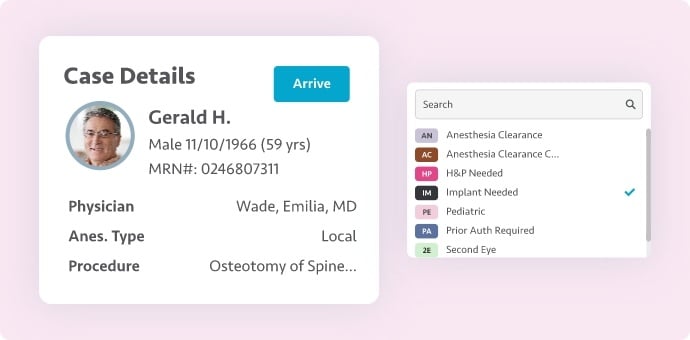
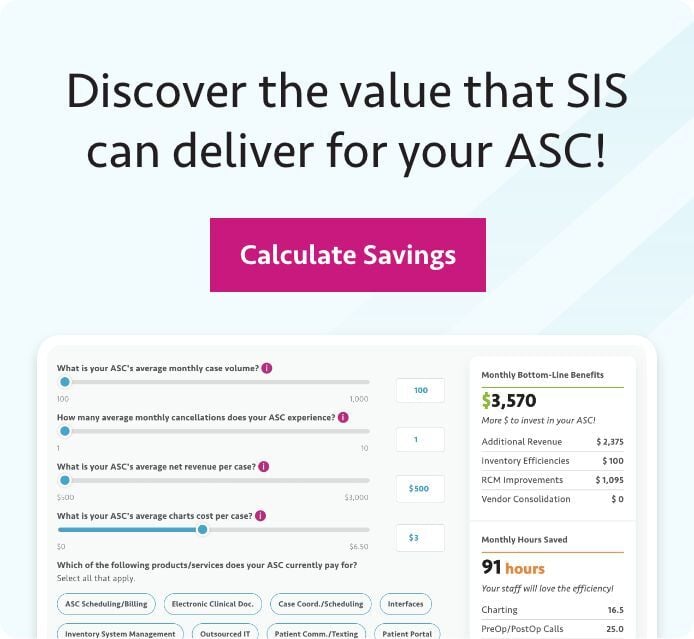


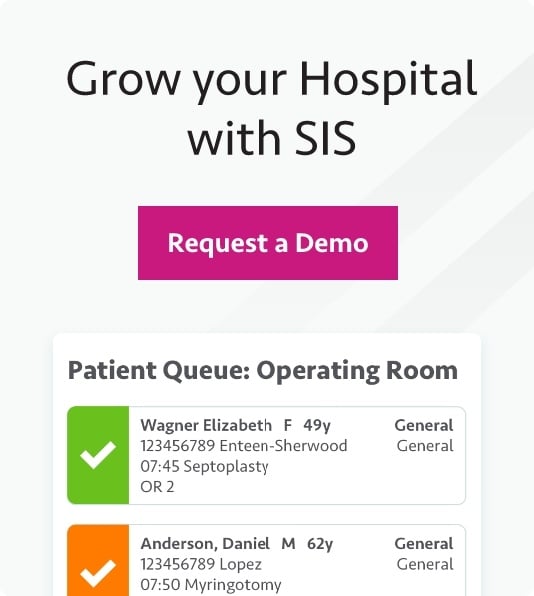









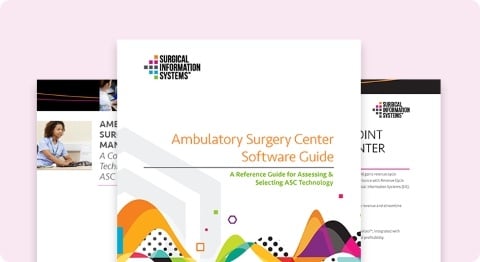




.jpg?width=65&name=Daren%20Smith%20(3).jpg)
